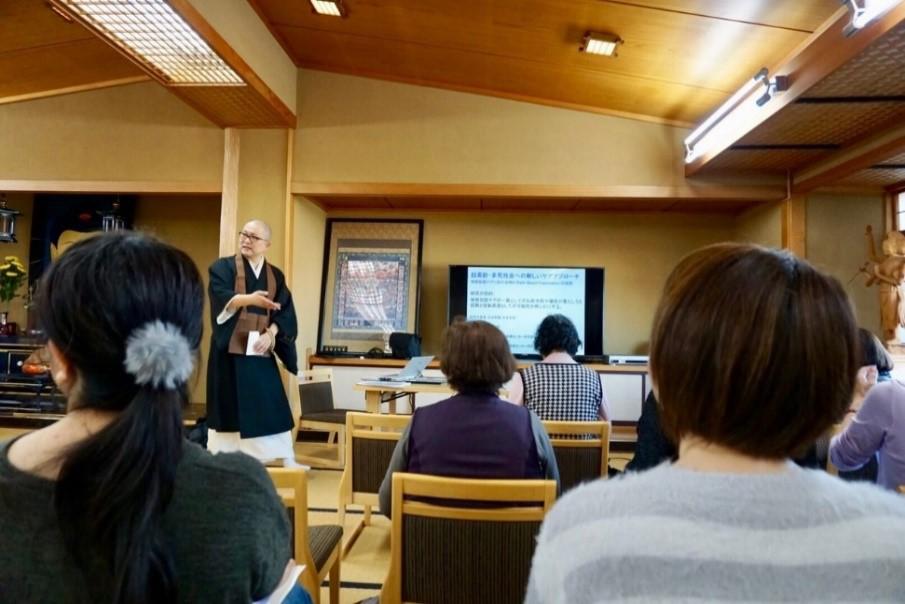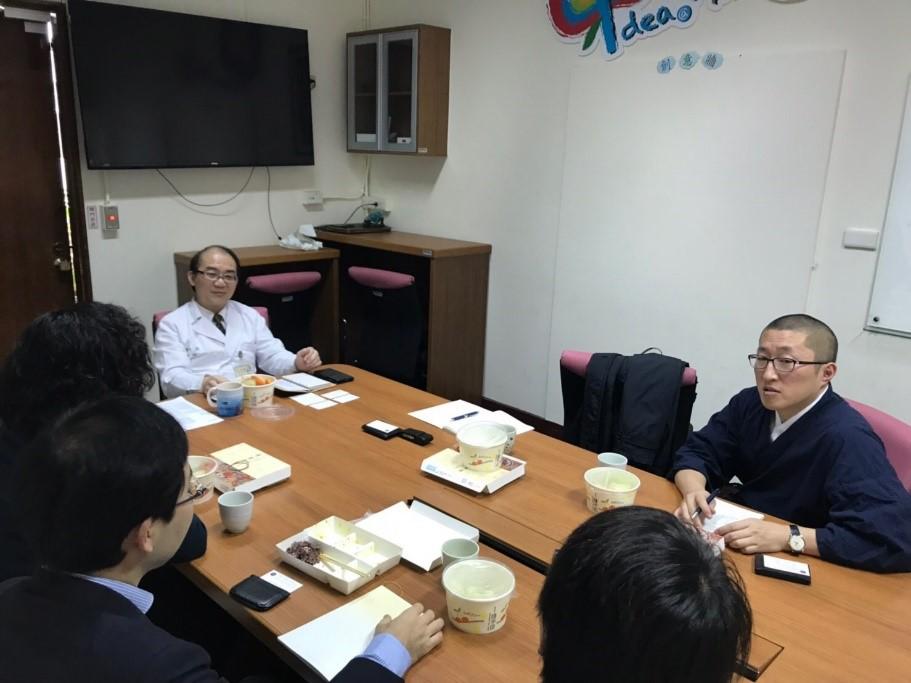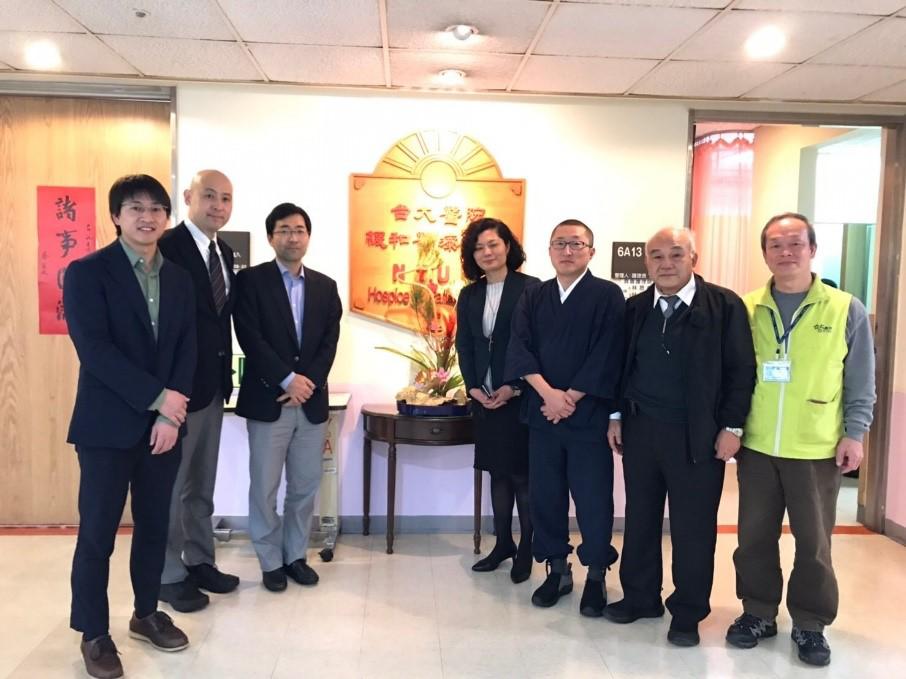Although neurology has revealed the pathology of dementia, disease-modifying drugs for dementia are not available. Therefore, the number of people with dementia (PWD) is increasing. Developing dementia-friendly communities through human-rights-based approaches is a global goal.
The role of religion in the care of PWD has seldom been discussed in Japan. We launched an innovative interdisciplinary project involving geriatric psychiatrists, psychologists, social welfare researchers, religious study researchers, and Buddhist priests. This collaborative research team is investigating the care of older people.
Below are some of our outputs.
1. We conducted a questionnaire survey among staff of geriatric facilities; 71% of the 260 respondents expressed a need for Buddhist priests to help patients cope with anxiety or distress.
2. We found that a positive attitude toward providing end-of-life care was a protective factor against depersonalization. Depersonalization can be defined as “psychological withdrawal from relationships and the development of a negative, cynical, and callous attitude,” and may lead to elder abuse.
3. We noted that religious beliefs were significantly associated with positive attitudes toward providing end-of-life care.
4. We conducted a nationwide survey of Buddhist temples to investigate Buddhist priests’ monthly visits to believers’ homes, which is an old tradition. We are currently analyzing the results using a geographical imaging system.
5. We are developing carers’ cafés at Buddhist temples with help from Pure Land Sect, which is one of the largest sects in mainstream Buddhism in Japan. By August 2019, 40 temples had opened such cafés.



